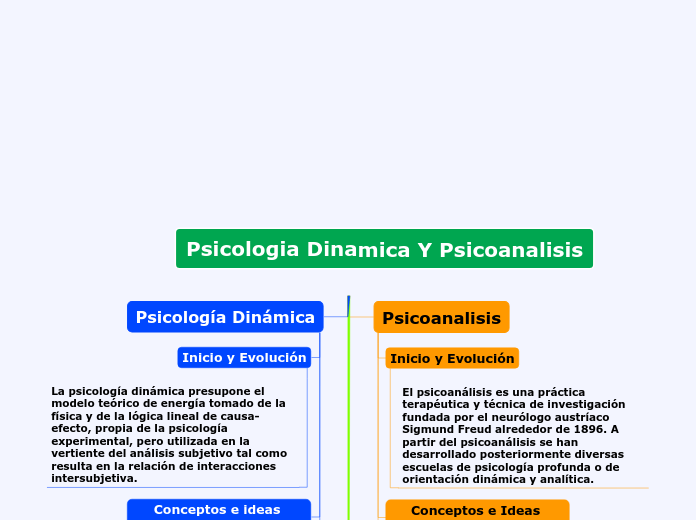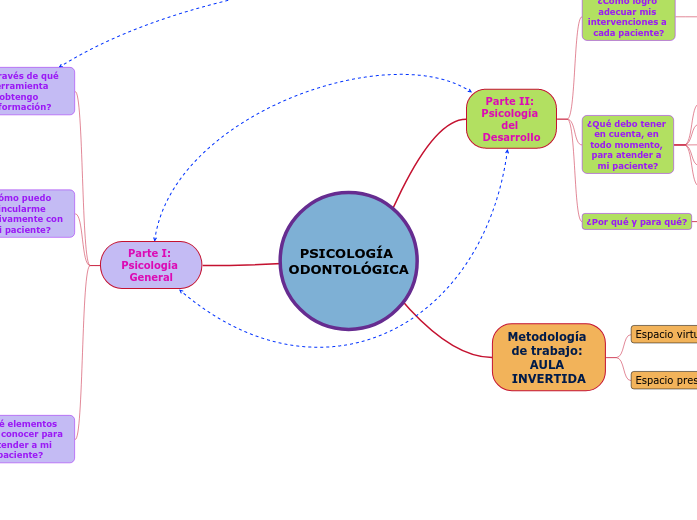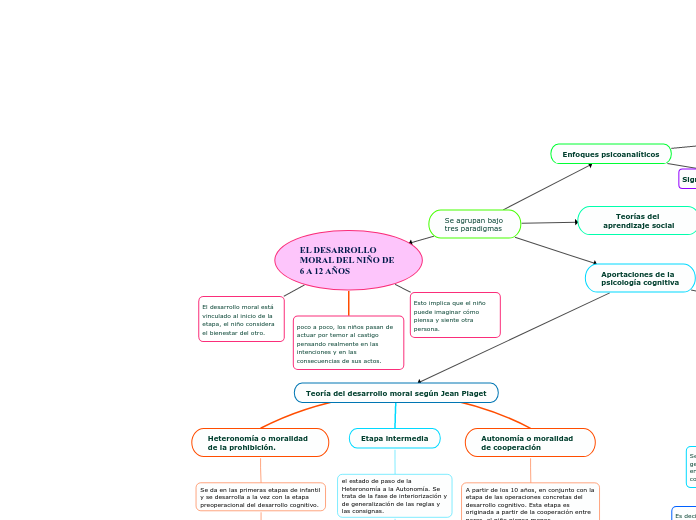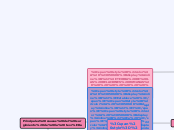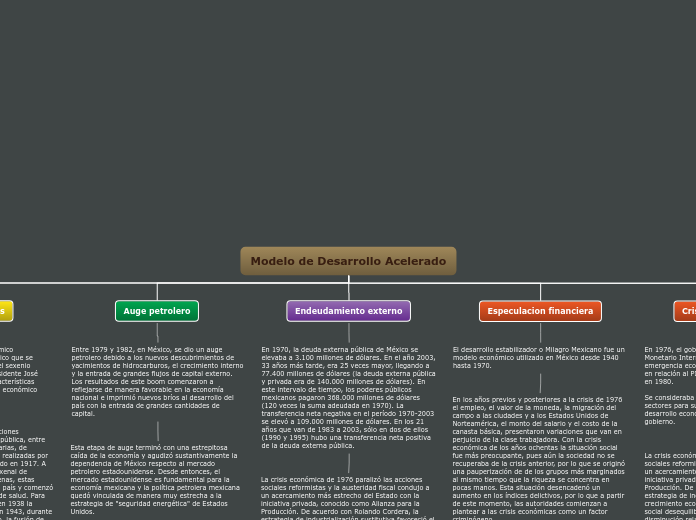Psicologia Dinamica Y Psicoanalisis
In linguistics, syntax is the set of rules, principles, and processes that govern the structure of sentences in a given language, usually including word order.
Psicología Dinámica
A complex sentence is a sentence that contains an independent clause and one or more dependent clauses.
An independent clause can stand alone as a sentence, but a dependent clause even though it has a subject and a verb cannot stand alone.
The subject clause is a dependent clause that acts as a subject.
La psicología del yo
Es una escuela de psicoanálisis enraizada en el modelo estructural freudiano de la mente humana.
Teoría de las relaciones objetales
La teoría plantea la existencia de una necesidad primaria de objetos, que no puede reducirse a la búsqueda del placer.
Teoría del desarrollo de Margaret Mahler
Esta teoría establece, que el nacimiento biológico del infante humano y su nacimiento psicológico no coinciden en el tiempo.
Conceptos e ideas principales
A predicative clause may be introduced by conjunctions - that, whether, whether... or, as, as if, as though, because, lest, the way - or connectives.
The latter may be conjunctive pronouns - who, whoever, what, whatever, which - or conjunctive adverbs - where, wherever, when, whenever, how, why.
Las fuerzas psicológicas de la psicología dinámica, subyacen en el comportamiento humano, los sentimientos y las emociones y cómo pueden relacionarse con la experiencia temprana.
En su sentido más amplio, la psicodinamica es un enfoque de la psicología que enfatiza el estudio sistemático de las fuerzas psicológicas.
The object clause is a phrase on which a verb performs an action. It falls at the end of a sentence, and is governed by a verb or a preposition.
La psicología dinámica presupone el modelo teórico de energía tomado de la física y de la lógica lineal de causa-efecto, propia de la psicología experimental, pero utilizada en la vertiente del análisis subjetivo tal como resulta en la relación de interacciones intersubjetiva.
Dimensiones del Ser Humano
La naturaleza del ser humano es dinámica, activa y compleja. Sin embargo, no es posible elaborar una lista de rasgos que describan su esencia colectiva, pues los individuos son producto de la cultura y de la adaptación al medio. No obstante se pueden distinguir 3 aspectos importantes que forman parte de los seres humanos como seres vivos racionales: El ser biológico, el ser social y por ultimo el ser psicológico
Psicoanalisis
Escuelas y Pilares
Traditional grammar defines the object in a sentence as the entity that is acted upon by the subject.
Transferencia
Es la función psíquica mediante la cual un sujeto transfiere inconscientemente y revive, en sus vínculos nuevos, sus antiguos sentimientos, afectos, expectativas o deseos infantiles reprimidos, hacia otra persona.
Sexualidad Infantil
The indirect object identifies the person/thing for whom/which the action of the verb is performed.
The indirect object is usually a person or a thing.
El desarrollo de la personalidad consiste en el desenvolvimiento o despliegue de los instintos sexuales.
Inconsciente
The direct object is the receiver of the action mentioned in the sentence.
Este termino es utilizado para connotar el conjunto de los contenidos no presentes en el campo actual de la conciencia.
Conceptos e Ideas Principales
The predicate of a sentence is the part that modifies the subject in some way. Because the subject is the person, place, or thing that a sentence is about, the predicate must contain a verb explaining what the subject does and can also include a modifier.
el psicoanálisis utiliza el discurso inconsciente como materia para analizar los deseos y las frustraciones del paciente
Método de tratamiento de algunas enfermedades mentales basado en esta teoría.
Inicio y Evolución
The subject of a sentence is the person, place, thing, or idea that is doing or being something. You can find the subject of a sentence if you can find the verb.
Ask the question, 'Who or what 'verbs' or 'verbed'?' and the answer to that question is the subject.
El psicoanálisis es una práctica terapéutica y técnica de investigación fundada por el neurólogo austríaco Sigmund Freud alrededor de 1896. A partir del psicoanálisis se han desarrollado posteriormente diversas escuelas de psicología profunda o de orientación dinámica y analítica.
